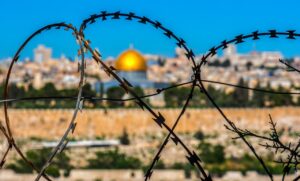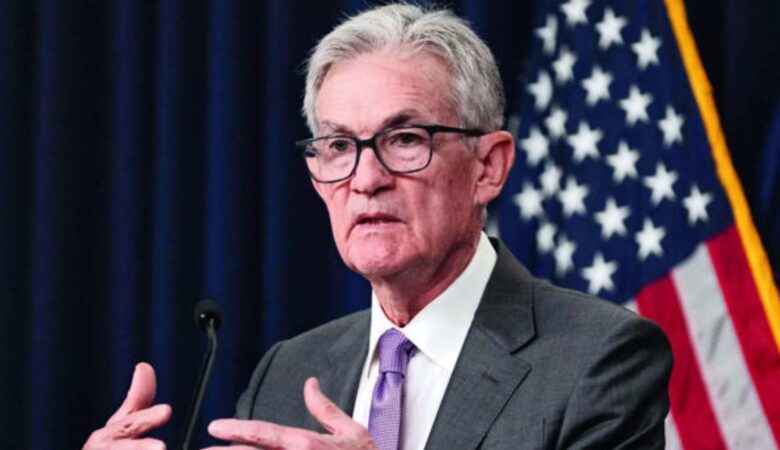The situation in the Middle East is becoming increasingly tense as Israel ramps up its ground offensive in Lebanon while weighing its options in relation to Iran. Israeli Prime Minister Benjamin Netanyahu’s recent declaration of a “sacred war” against Hamas has escalated military operations in Gaza and the wider region, including Lebanon. Meanwhile, global powers, especially the United States, are watching closely as Israel assesses its broader strategy, particularly in regard to Iran’s involvement. Tehran has supported groups like Hezbollah in Lebanon, adding complexity to Israel’s military decisions.
Israel’s Offensive in Lebanon:
Amid growing tensions, Israel has intensified its military activities in southern Lebanon. Hezbollah, an Iran-backed group based there, poses a significant threat to Israel’s northern border. While the primary focus remains Hamas in Gaza, Israel’s military strategy also seems to address potential threats from Hezbollah. Netanyahu has emphasized that Israel is engaged in a larger ideological battle and has promised to take all necessary actions to secure its people and borders.
The recent ground offensive has led to escalations in the region, with reports of casualties and destruction in southern Lebanon. However, Israel’s objective seems broader than simply neutralizing Hezbollah. By striking in Lebanon, Israel is sending a strong message to Iran, whose influence in Lebanon has been a point of contention.
Iran’s Role in the Conflict:
Iran’s involvement in the Israel-Hamas conflict has been an underlying tension throughout the recent hostilities. Iran, which provides military and financial backing to Hamas and Hezbollah, stands as a significant regional actor. Tehran’s strategic partnerships with militant groups have long worried Israel, and as fighting intensifies, Israeli military leaders must weigh the risk of a broader confrontation with Iran.
The world is watching closely as Israel debates how far to escalate its operations in the region. While Israel’s immediate objective seems to be dealing with Hezbollah and securing its northern borders, any overt move against Iran could trigger a far-reaching conflict, potentially pulling in other regional powers and allies. Iran’s leadership has issued warnings to Israel, indicating that any direct Israeli action against Iranian interests could lead to retaliation.
International Reactions and Global Tensions:
As Israel presses forward with its military operations, global powers are growing anxious. The U.S. and European nations have publicly urged restraint, fearing that an escalation involving Iran could destabilize the entire region. The U.S., while a staunch ally of Israel, has been carefully monitoring the situation, understanding that an all-out war involving Iran could draw in its forces stationed in the Middle East. There is also the risk that regional actors, such as Syria or Iraq, could become involved, further complicating the dynamics.
Meanwhile, Iran’s fate hangs in the balance. With significant sanctions already imposed and a struggling economy, Tehran’s direct involvement in a broader conflict could lead to more diplomatic isolation and economic hardship. Iranian leaders are aware of the precariousness of their position and are likely weighing their options carefully. Some analysts believe that Iran might avoid direct military confrontation, opting instead to support its proxies in Lebanon and Gaza to continue exerting pressure on Israel.
Balancing Diplomacy and Military Action:
In this high-stakes situation, diplomacy has become increasingly complex. Israel’s leaders, while focused on military success, must also consider the geopolitical consequences of their actions. Netanyahu’s government faces pressure from hardliners who advocate for stronger military responses to Hezbollah and Iran, but there is also an understanding that escalating tensions with Iran could lead to uncontrollable consequences.
On the diplomatic front, negotiations are ongoing, with regional and international leaders working behind the scenes to prevent further escalation. The United Nations has called for a ceasefire, and countries like Turkey and Qatar are positioning themselves as mediators. However, as long as military operations continue, the risk of a wider war remains high.
Strategic Implications for Israel:
For Israel, the current conflict is about more than just Hamas or Hezbollah; it’s about securing its long-term regional interests. Israeli leadership is aware that a decisive victory against both Hamas and Hezbollah could reshape the Middle East’s power dynamics. However, the cost of a prolonged war, particularly one involving Iran, would be immense. Israeli military planners must balance the need for immediate security with the risk of dragging the nation into a protracted and costly conflict.

The involvement of Hezbollah in Lebanon complicates Israel’s options. While Israeli forces have shown their capability to neutralize immediate threats, the possibility of Hezbollah launching rocket attacks into northern Israel remains a persistent concern. Moreover, any Israeli offensive in Lebanon could further inflame tensions with Iran, potentially leading to a broader regional conflict.
The Road Ahead:
As both Israel and Iran weigh their options, the world holds its breath. The outcome of these conflicts could have long-lasting implications for the region and beyond. For Israel, the challenge lies in eliminating immediate threats while avoiding a full-scale war with Iran. For Iran, its future relations with the West and its standing in the Middle East hang in the balance.
At present, Israel appears focused on addressing the threat from Hezbollah in Lebanon while simultaneously keeping a close eye on Iran’s response. The next few weeks will be critical in determining whether the conflict remains localized or expands into a broader regional war. Both Israel and Iran will need to carefully calculate their next moves, knowing that the stakes are higher than ever.
In conclusion, Israel’s military escalation in Lebanon is part of a broader strategy to safeguard its borders.. Meanwhile, its decisions regarding Iran will be pivotal in shaping the conflict’s outcome. The situation remains fluid, and both military and diplomatic efforts will play a crucial role in determining the region’s future stability.
Also Read:
Israel-Iran War: Conflict Expands as Israel Targets Hezbollah
Israel Breaking – Missile Launched From Yemen Intercepted
Fury and Defiance: Netanyahu Slams Macron as Israel Faces Growing Threats







Leave a Reply